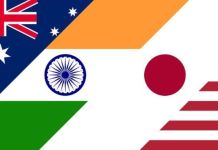On April 14, US President Donald Trump announced to halt the funding for the World Health Organization (WHO). Trump said the review would cover the WHO’s “role in severely mismanaging and concealing the spread of coronavirus.”
Meet The Veterans Who Survived Spanish Flu, World War, Great Depression & Now Covid-19 Pandemic
Trump’s decision comes in the middle of the worst global pandemic in decades and as he fiercely advocates his own handling of the outbreak in the United States. ‘’ The WHO failed in its basic duty and it must be held accountable’’, he said. He also alleged that the WHO promoted China’s ‘’ disinformation’ about the pandemic that likely led to a wider outbreak.
The US is the single largest contributor to the WHO. It gives the body almost $5 mn every year, with $400 mn in voluntary payments and $116 million mandated by the United Nations.
In 2018-2019, the American government alone contributed almost 15% of the $4.4 bn of the WHO budget. With the halt in funding, the future of the WHO raises several concerns. Several WHO programs, including those dealing with COVID-19 mitigation, are now under threat of being sidelined as millions of dollars in funding dry up. For the 2020-2021 budget, as much as $720 million dollars worth of WHO programs could go unfunded for this year and the next.
Why Is The World Turning Towards India During Covid-19 Pandemic?
China Responds
President Trump’s decision to stop funding of the WHO in the midst of a pandemic drew immediate criticism from China. Speaking to Global Times Zeng Guang, the chief epidemiologist at the Chinese Center for Disease Control and Prevention, labeled the decision as ‘’unethical’ and believes the US is only trying to divert attention from its own failure of managing the crisis.
‘‘This is a very bad sign, but can the US deal with defeating the pandemic locally by halting funding of the WHO’’, he asked.
Zeng believes that the world is making efforts to fight the pandemic and it is the right time to let the World Health Organization play its role, but the US is only trying to divert attention by freezing the funding. ‘‘
Why India or Vietnam Can Never Replace China As The World’s Manufacturing Hub?
The US has not responded to the epidemic properly and its accusations against the WHO go against the facts. This is unethical and will only make it more isolated in the world’’, he said. Zeng added that ‘’it is not the world of unilateralism, but multilateralism’’ and believes the US withdrawal of funds will not have a domino effect, as countries would not follow US lead.
Funding remains critical to WHO’s functioning and its program funds come from two main sources — assessed contributions made by member states relative to their wealth and population, and also voluntary contributions.
The US is the biggest contributor to the organization and pledged to contribute 22% of the total assessed contributions from the organization’s member states, according to WHO data.
Meet The Veterans Who Survived Spanish Flu, World War, Great Depression & Now Covid-19 Pandemic
Zeng said that the budget cut would not prevent the sharing of information with the world, but might contribute to the shortage of funds for staff salaries and projects. Since the US has not taken the decision to withdraw from the organization itself, it means its officials would still participate in WHO meetings, an action which Zeng finds disgraceful.
In the interview with Global Times, the Chief epidemiologist also commented on whether China could increase its funding to the international health body. Zeng said its within Beijing’s capability (China accounts for 12% of total assessed contributions for 2020-2021) to support the organization financially, but the WHO should not be supported by one nation.
All countries should jointly increase support for the WHO, otherwise, the US may use this as a reason to attack other countries.
Moscow’s Priorities During COVID-19: International Prestige Over The Safety Of Its Citizens: OpEd
WHO Director-general, Tedros Adhanom, regretted the decision by the US to cut funding but called on world unity to fight the coronavirus pandemic. “The United States has been a long-standing and generous friend of the WHO, and we hope it will continue to be so,” WHO Tedros told a press conference.
The impact of the decision is still under assessment and would try to fill any gaps with partners, he said. While the WHO tries balance cuts in assessed contributions by member states through voluntary contributions, the former provides a level of predictability and helps to minimize dependence on a narrow donor base, allowing resources to be aligned to the program budget.




